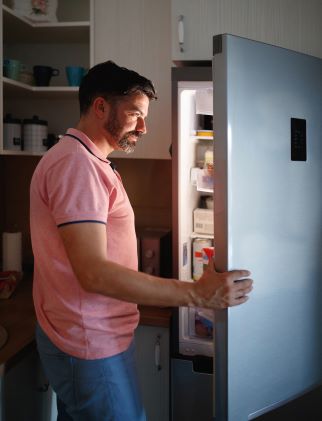December 2023
Should I Still Eat That?
While some eating habits may be considered quirky (like putting ketchup on everything), others are downright dangerous. That’s usually because they up the risk for food poisoning from mold, bacteria, viruses, or parasites. These nasties can trigger uncomfortable symptoms, like stomach cramps, diarrhea, and vomiting. Less often, illness leads to arthritis, kidney or brain damage, or even death.

Are you taking risky chances? Here’s the scoop on 4 common habits:
Relying on the 5-second rule
While some floors may be an obvious no-go, none are truly safe to eat off of. You can’t see, taste, or smell germs, but food’s contact with them is instantaneous.
Using meat after the ‘best-by’ date
The label wording may change (“Best if Used Before,” etc.), but the date means the meat’s quality is best up until then, according to the manufacturer. So, you can still cook it if there’s no sign of spoilage. The USDA suggests using or freezing beef, veal, pork, or lamb within 3 to 5 days of purchase. For ground meat, or any poultry, do so within 1 or 2 days.
Eating food that's sat out for a while
This depends on what “a while” means and the conditions. Anything perishable should go into the fridge within 2 hours. Examples include leftovers; cooked rice; cut fruit; and poultry, meat, and seafood. If they’re sitting in temps of more than 90 degrees, the time limit goes down to 1 hour.
Noshing on cold or lukewarm leftovers
Cold pizza isn’t the best way to go. Even classic leftovers should be reheated to 165 degrees. Proper storage and thawing, if the food was frozen, is important, too.